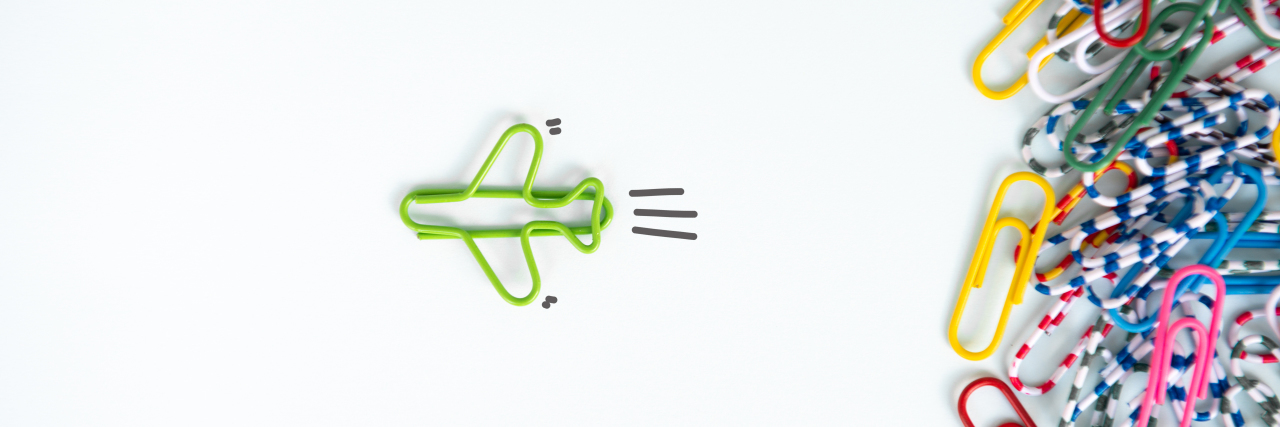I believe one of the greatest challenges of disabilities is the taboo that surrounds them in societies across the world. Recently people have been attempting to rectify this, to change and develop understanding towards the one in five humans around them who live with these conditions. But sometimes it feels like it can come across in the wrong way.
Humans often have the deep desire to “fit in” with those around them, especially when they know there’s something different. I have spent my childhood feeling the exact same way as the majority, absolutely terrified to shout out that there’s something not-quite-normal about me. I didn’t want to be someone unique, because it was hard enough just facing that I had something unique.
I believe that is one of the greatest issues in society’s attempts to understand.
To make disabled people more relatable, they remove our differences from our identities. They try to make us “more normal” like them. Instead of accepting us as we are, they try to change us without even realizing it.
It took me until just this year to finally figure out that I didn’t want to have something special, but to be someone special. If I am not 100 percent honest about who I am, I cannot own myself.
I am finally ready to shout it out: I am autistic.
Not that I just have autism, but that it is a part of me. A very important part. To say that I have it would imply that it is a disease, something I should be ashamed of and want to get rid of, even if that’s not my intention.
To relate it to another situation, I could use the word “cold.” To say that “she is cold” is completely different from saying that “she has a cold” – one implies that someone is a private or quiet person (or needs a jacket), whereas the latter states a contagious disease that should be avoided along with the person unfortunately possessing it. Both can provoke suspicion and prejudice, but when the first can develop understanding, the second promotes a desire for distance, distaste and disgust as well as pity.
That is what most people don’t realize when they attempt to relate to us. What we have is not a choice or something that can be “caught.” We don’t want their pity.
I don’t need to feel upset at being born this way, and no one else should make me either. Because I am different I am unique, and I am stronger because of it.
Maybe I can’t understand emotions and expressions the way those around me can, and maybe people will sometimes look at me strangely for not understanding what seems so obvious to them. But if I had not been born this way, then maybe I wouldn’t have a talent for mathematics, a love for patterns, and an understanding for animals that most do not.
It wasn’t until my therapist (and I’m not afraid to admit having one) pointed out how differently I think that I found the advantages of my diagnosis and not just the shame.
It is why many of us call “mental illnesses” “mental disabilities” instead – an illness means something is wrong and needs to be fixed, but an ability means there are situational advantages that can be celebrated.
If someone is good at sports, they don’t say “I have an athletic ability,” but rather “I am an athlete.” It is the same with art, music or any other talent. So why can’t I (and every other differently mentally-abled person in society) be the same?
– ASD (autism spectrum disorder) can give people astounding logical understanding in math, sciences, grammar and everywhere else that a pattern can be identified.
– ADHD (attention deficit hyperactivity disorder) often includes creativity, extreme focus and a more energetic persona than average.
– OCD (obsessive compulsive disorder) often results in above average attention to details and a stronger drive, or desire, to achieve difficult tasks.
– Schizophrenia paves the way for new, revolutionary ideas and can challenge traditional creativity.
– Clinical depression can help develop problem-solving skills at more complex levels and may make people better able to identify details and choose a cost/benefit approach.
Every mental disability can develop a psychological advantage, and now that I know it, I feel that I have no reason to hide who I am any longer. I am finally willing to own that word, that label, and show my face to society.
I don’t have autism. I don’t have a mental “problem.” I am someone who sees things in a way people around me cannot. I am autistic.
Getty image by Magnetic-Mcc.

